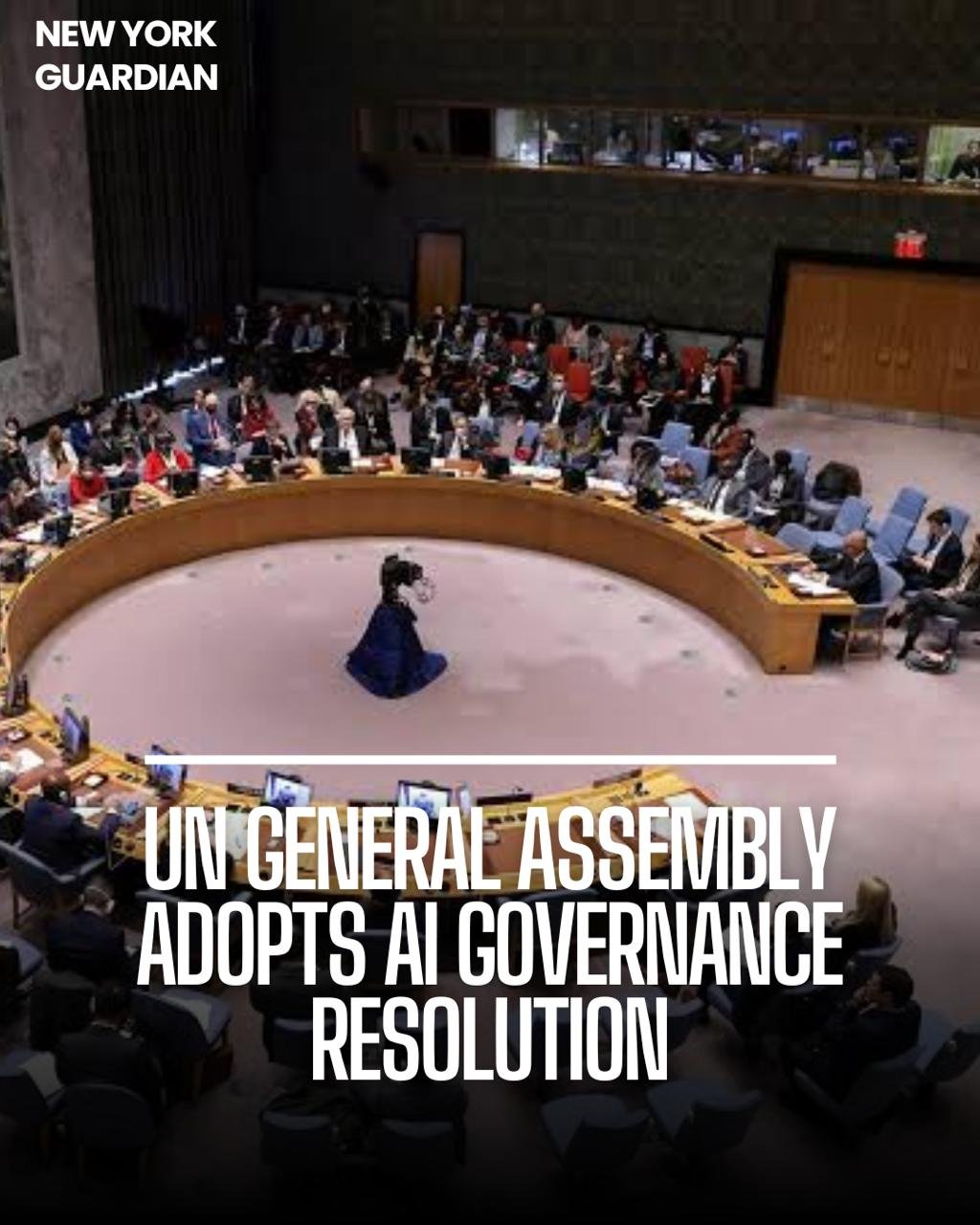On Thursday, the United Nations General Assembly unanimously embraced the first international resolution on artificial intelligence, encouraging nations to protect human rights, safeguard personal data, and observe AI for threats.
The United Nations General Assembly has adopted a nonbinding resolution, proposed by the United States and co-sponsored by China and over 120 other nations, advocating for the governance of artificial intelligence (AI). The resolution also emphasizes the need to strengthen privacy policies.
Global Consensus on AI Governance
U.S. Ambassador to the United Nations Linda Thomas-Greenfield hailed the unanimous support for the resolution, stating that “all 193 members of the United Nations General Assembly have spoken in one voice” to govern AI rather than allowing it to govern humanity.
Addressing Concerns and Risks
The resolution reflects growing concerns about the potential risks associated with AI technology. It acknowledges that the improper or malicious design, development, deployment, and use of AI systems could undermine human rights and fundamental freedoms.
International Efforts on AI Regulation
This resolution is part of a series of global initiatives aimed at shaping the development of AI technology. Governments worldwide are taking steps to address various concerns, such as the potential disruption of democratic processes, increased fraud, and job losses.
Previous Agreements and Initiatives
In November, the U.S., Britain, and several other countries unveiled the first detailed international agreement on AI safety, emphasizing the importance of creating AI systems that are “secure by design.”
Additionally, Europe has made progress in AI regulation, with EU lawmakers adopting a provisional agreement to oversee the technology.
Challenges in the United States
While the Biden administration has pushed for AI regulation, progress has been limited due to political polarization in the U.S. Congress. However, the White House has taken steps to mitigate AI risks through executive orders, focusing on consumer protection, workforce impact, minority rights, and national security.





















